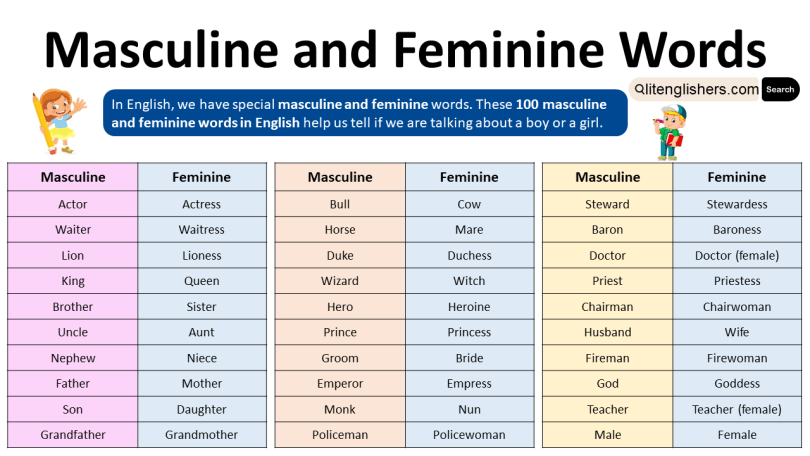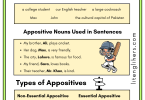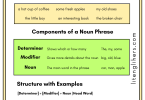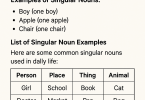In English, we have special masculine and feminine words. These 100 masculine and feminine words in English help us tell if we are talking about a boy or a girl. Knowing these words makes it easier to understand and use English better. It’s important for speaking and writing clearly. This way, everyone knows exactly who or what we are talking about, making our conversations and stories more interesting and easy to follow.
Masculine and Feminine
| Masculine | Feminine |
|---|---|
| Actor | Actress |
| Waiter | Waitress |
| Lion | Lioness |
| King | Queen |
| Brother | Sister |
| Uncle | Aunt |
| Nephew | Niece |
| Father | Mother |
| Son | Daughter |
| Grandfather | Grandmother |
| Bull | Cow |
| Horse | Mare |
| Duke | Duchess |
| Wizard | Witch |
| Hero | Heroine |
| Prince | Princess |
| Groom | Bride |
| Emperor | Empress |
| Monk | Nun |
| Policeman | Policewoman |
| Steward | Stewardess |
| Baron | Baroness |
| Doctor | Doctor (female) |
| Priest | Priestess |
| Chairman | Chairwoman |
| Husband | Wife |
| Fireman | Firewoman |
| God | Goddess |
| Teacher | Teacher (female) |
| Male | Female |
| Son-in-law | Daughter-in-law |
| Brother-in-law | Sister-in-law |
| Gentleman | Lady |
| Father-in-law | Mother-in-law |
| Father-in-law | Mother-in-law |
| Manager | Manageress |
| Brother-in-law | Sister-in-law |
| Son-in-law | Daughter-in-law |
| Grandson | Granddaughter |
| Count | Countess |
| Landlord | Landlady |
| Manager | Manageress |
Now, let’s understand how these masculine and feminine words are formed.
Related: Gender of Nouns in English
Formation of Feminine of Nouns
There are three ways of forming the Feminine of Nouns:
1: By using an entirely different word, as
| Masculine | Feminine |
| Bachelor | Maid; Spinster |
| Brother | Sister |
| Bullock | Heifer |
| Colt | Filly |
| Drake | Duck |
| Father | Mother |
| Gentleman | Lady |
| Husband | Wife |
| Man | Woman |
| Nephew | Niece |
| Son | Daughter |
| Wizard | Witch |
| Boy | Girl |
| Bull (or ox) | Cow |
| Cock | Hen |
| Dog | Bitch |
| Drone | Bee |
| Gander | Goose |
| Horse | Mare |
| King | Queen |
| Monk | Nun |
| Sir | Madam |
| Stag | Hind |
| English man | English woman |
| He-mule | She-mule |
| Stallion | Mare |
| Sales man | Sales girl |
| Tutor | Governess |
| Drone | Bee |
| Brother-in-law | Sister-in-law |
| Son-in-law | Daughter-in-law |
| Maternal-uncle | Maternal-aunt |
| Step-son | Step-daughter |
| Hostess | Steward |
| Widow | Widower |
| Brother-in-law | Sister-in-law |
2: By adding a syllable (-ess, -ine, -trix, -a, etc.) as,
| Masculine | Feminine |
| author | authoress |
| count | countess |
| heir | heiress |
| Jew | Jewess |
| manager | manageress |
| patron | patroness |
| priest | priestess |
| baron | baroness |
| giant | giantess |
| host | hostess |
| lion | lioness |
| mayor | mayoress |
| poet | poetess |
| shepherd | shepherdess |
Note that in the following -ess is added after dropping the vowel of the masculine ending!
| Masculine | Feminine |
| actor | actress |
| conductor | conductress |
| hunter | huntress |
| negro | negress |
| prince | princess |
| traitor | traitress |
| master | mistress |
| benefactor | benefactress |
| founder | foundress |
| instructor | instructress |
| emperor | empress |
| tiger | tigress |
| waiter | waitress |
| murderer | murderess |
Note: – The suffix -ess is the commonest suffix used to form feminine nouns, and the is the only one which we now* use in forming a new feminine noun.
| Masculine | Feminine |
| hero | heroine |
| fox | vixen |
| sultan | sultana |
(3) By placing a word before or after; as.
| Masculine | Feminine |
| grandfather | grandmother |
| manservant | maidservant |
| milkman | milk-woman |
| salesman | saleswoman |
| great-uncle | great-aunt |
| landlord | landlady |
| peacock | peahen |
Read More…
- Tips for Mastering English Grammar
- WH-Question Words with Helpful Examples
- Use of Modal Verbs Will and Shall in English
- 10+ Apps to find Language Speaking Partners






